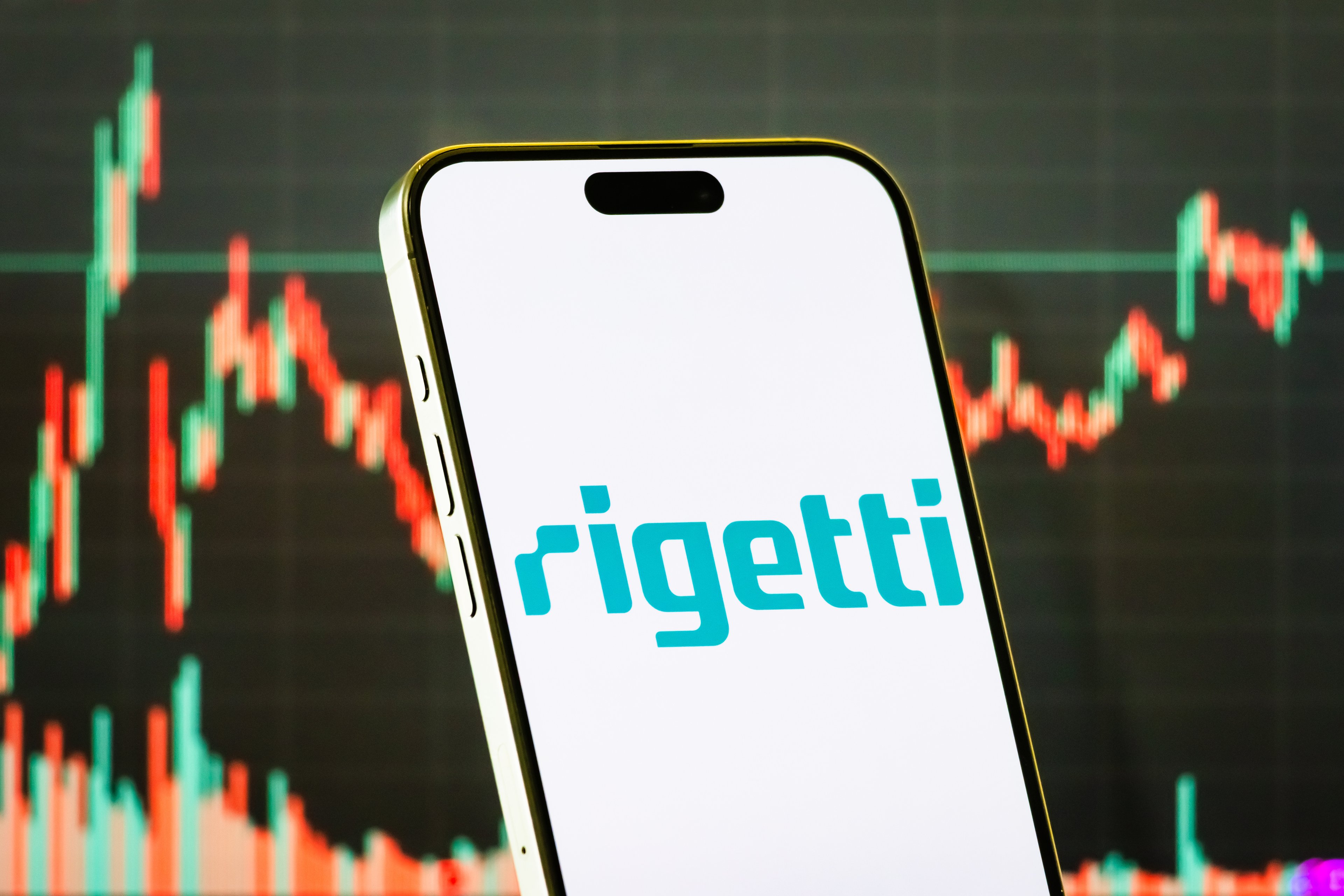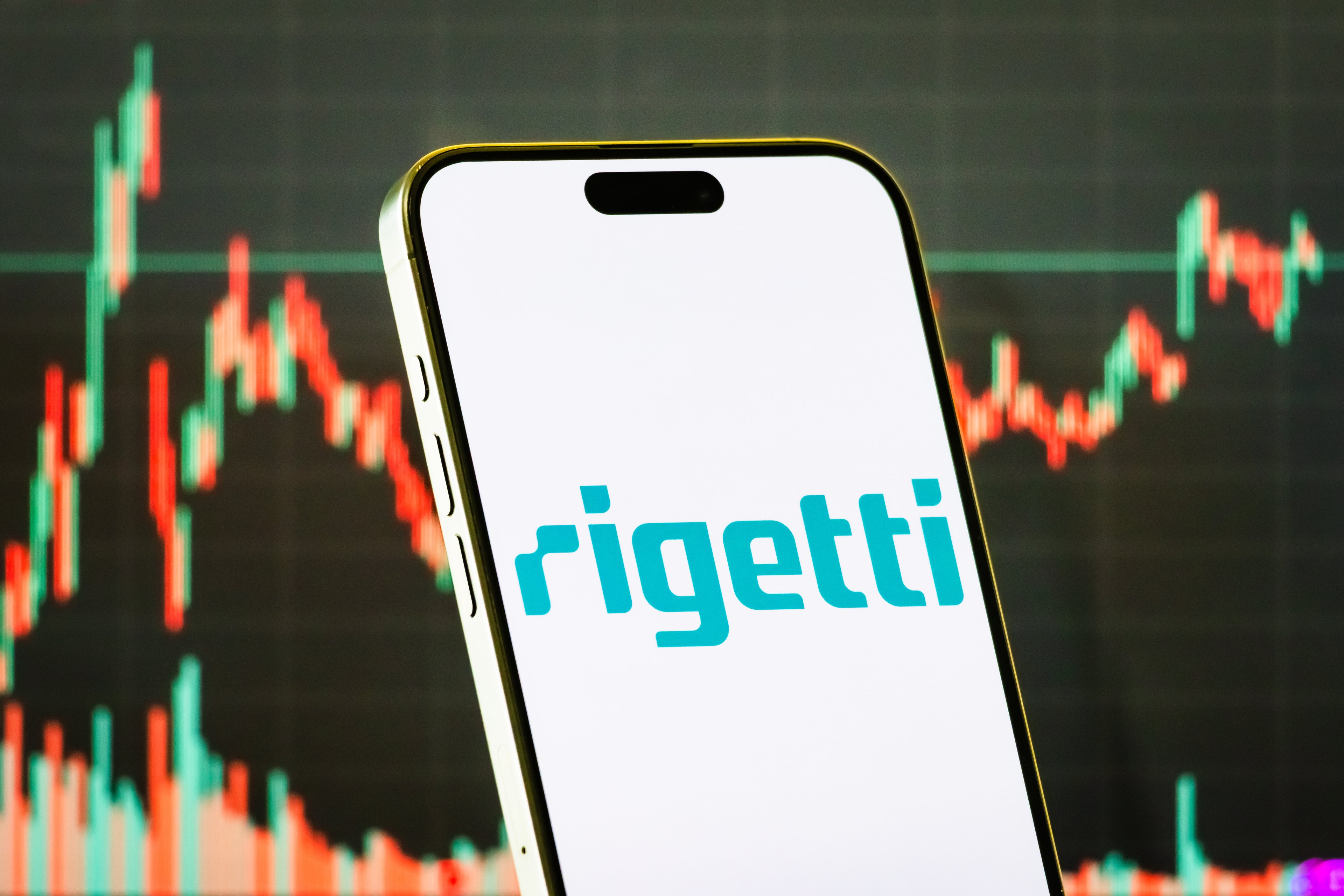When it comes to investing in quantum computing stocks, investors have taken a liking to pure plays such as IonQ, D-Wave Quantum, and Rigetti Computing (RGTI +1.34%), as opposed to more diversified, established artificial intelligence (AI) businesses like Amazon, Microsoft, Alphabet, or Nvidia.
I believe one of the primary reasons for this is that investors are seeking new sources of growth and have become disillusioned with the usual suspects among big tech.
One stock that's been a major beneficiary of the enthusiasm surrounding quantum AI is Rigetti Computing -- whose shares have risen by 1,800% over the last year. While momentum like that might imply Rigetti's rally is unstoppable, I'd encourage investors to think again.
Recently, shares of Rigetti have been selling off -- trading 55% below their intra-year highs. Even worse? One sell-side analyst on Wall Street is calling for considerably more downside.
While Richard Shannon of Craig-Hallum has the equivalent of a Buy rating on Rigetti, his stock price model has an intrinsic value of $20 per share -- implying roughly 20% downside from current trading levels.
Such a dichotomy is interesting. To me, it implies that Shannon is bullish on quantum computing from a macro standpoint, but he sees Rigetti as overvalued.
Let's break down what's fueling quantum computing stocks to begin with, and assess why selling Rigetti stock right now could be a smart move.

NASDAQ: RGTI
Key Data Points
Why is investing in quantum computing stocks popular?
For much of the AI revolution, investors have turned to leaders across semiconductors, data centers, and enterprise software for growth. Quantum AI burst onto the scene about a year ago, as newcomers like Rigetti promised to revolutionize how investors perceived modern computing.
At a high level, traditional computing systems rely on binary code to run algorithms. This code is scripted in a long series of two integers: 0 and 1. Quantum computing also uses a similar underlying code base. However, the key difference is that quantum systems can run these 0s and 1s in multiple environments simultaneously through a property known as superposition.
These clusters are known as qubits -- rather than regular binary bits -- and can theoretically process algorithms at much faster speeds compared to today's supercomputers.
Some technologists believe that quantum AI systems have the potential to bring unprecedented breakthroughs to mission-critical applications, including drug discovery, cryptography, forecasting energy patterns, and advanced statistical modeling.
Against this backdrop, some AI investors have become infatuated with the idea that quantum computing could be the "next big thing" -- making the prospect of pursuing early disrupters, such as Rigetti, an exciting idea.

Image source: Getty Images.
Why is Rigetti Computing stock falling lately?
Rigetti Computing went public in 2022 through a special purpose acquisition company (SPAC). At the time, the company's investor presentation was forecasting nearly $300 million in revenue by 2025, and management guided for this to double by 2026.

Image source: Rigetti Computing.
Spoiler alert: Rigetti's marketing efforts surrounding its "groundbreaking" superconducting quantum computing technology have not come to fruition.
Through the first nine months of the year, Rigetti Computing generated $5.2 million in revenue. This represents a 63% decrease from the previous year. Perhaps even more concerning is that the company's losses are mounting. Through Sept. 30, Rigetti's net loss was about $200 million on the year compared to roughly $50 million in 2024.
Rigetti CEO Subodh Kulkarni has been on a media blitz lately in an attempt to explain the company's situation. In essence, Kulkarni is attempting to temper investor expectations -- suggesting that Rigetti remains primarily in the research and development (R&D) phase and is years away from reaching commercial scale.
While the honesty is welcomed, I think some investors are realizing that Rigetti is not the rocket ship it previously suggested it could become. Meanwhile, Kulkarni cashed out a significant portion of his stock compensation when Rigetti was trading for $12 (it's now valued at about $25).
Prediction: Rigetti Computing is on a crash course with history
Even with the ongoing sell-off, Rigetti Computing still trades at a price-to-sales (P/S) ratio of 987. For context, early internet stocks, such as Cisco, Microsoft, and Amazon, traded at P/S multiples ranging from approximately 30 to almost 50 at the height of the dot-com bubble.
RGTI PS Ratio data by YCharts
In my eyes, the easy money collected by meme traders has already been made. The silver lining here is that if you bought Rigetti stock prior to the ongoing sell-off -- which started about two weeks ago -- then you're likely sitting on a gain. I'd use now as the time to get out and take any profit off the table.
Conversely, if you did buy into Rigetti's momentum, you may want to consider taking your losses. Waiting it out for a potential recovery is risky and could leave you holding the bag in what's swiftly becoming a falling knife. Moreover, the other silver lining to this strategy is that you can use any losses in your Rigetti position to offset your tax liability. This is known as tax loss harvesting.
Given these dynamics, I think Shannon's price forecast of $20 could be reached sooner rather than later. Given the combination of inconsistent revenue, heaps of losses, and insider selling activity, investors are left with few compelling reasons to buy Rigetti stock at this point in time.






